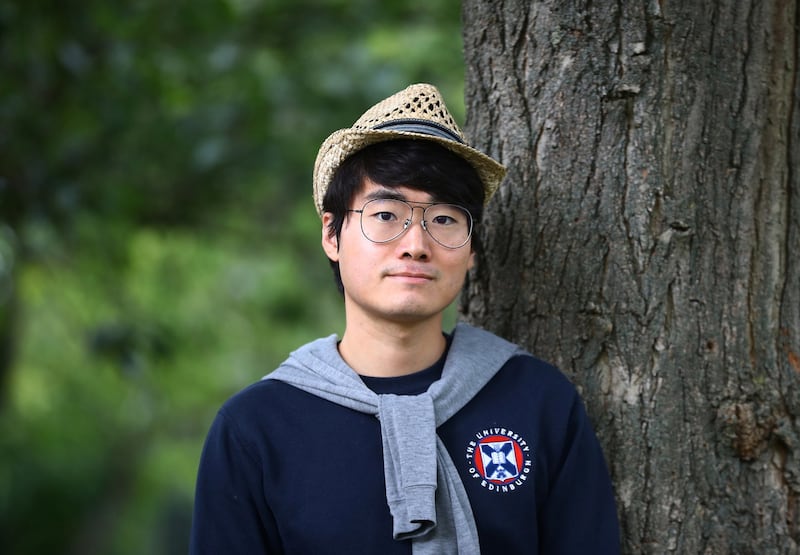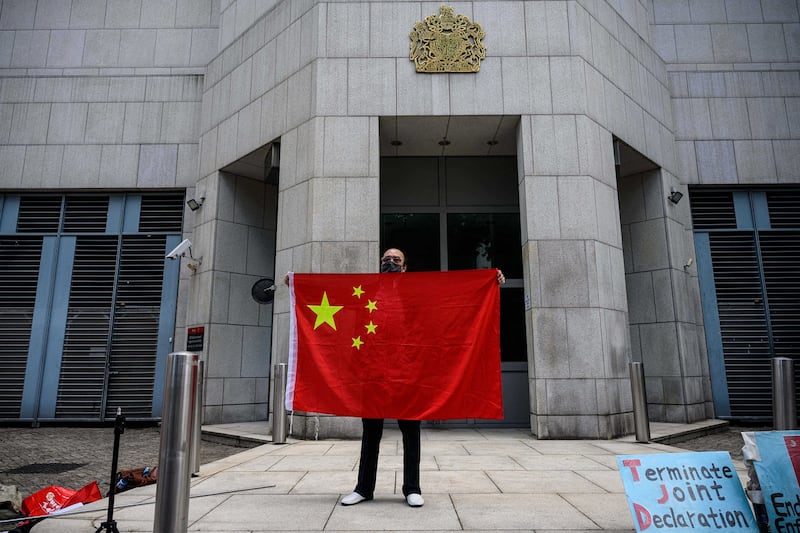China has demanded that foreign consulates in Hong Kong hand over all personal details of locally hired staff in the next few weeks, and continue to do so whenever they hire anyone new, according to a letter sent to diplomatic missions in the city cited in multiple media reports.
The letter sent to consulates and the Office of the European Union in the city enclosed a form to be filled out with details of locally hired staff, whether permanent residents or visa-holding foreign nationals.
"Consular Posts and the Office of the European Union are requested to complete this form for each staff locally engaged and send it to the Government Secretariat, Protocol Division within 15 days from the commencement of the engagement," the form titled "Notification of Staff Locally Engaged" said.
The move, which could spark security concerns for anyone connected with foreign governments under an ongoing "national security" crackdown, comes after the Financial Times reported last year that China was trying to obtain floor plans for all properties used by foreign missions in Hong Kong.
Copies of Monday’s letter and forms were seen by several media organizations including Reuters and Agence France-Presse, while a photo of one form was published by the Hong Kong Free Press.
The Commissioner's Office of China's Foreign Ministry confirmed to Reuters it had sent the letter on Monday.
"This measure is in line with international customary practice," it told the agency.
"It is understood that Chinese consulates stationed abroad also provide local employee information to the host country according to local government requirements."

Consulates are being asked to supply names, job titles, street addresses, ID or passport numbers and nationality of locally hired staff, in a move the letter said is in line with the Vienna Convention on Diplomatic Relations.
A second form asks consulates to notify the authorities when a diplomatic mission terminates someone's employment.
The forms are to be returned to the authorities by Oct. 18, the letter said, but gave no reason for the request.
Simon Cheng, a former employee of the British Consulate General in Hong Kong, said the authorities had previously only required consulates to supply details of people with diplomatic immunity living in the city.
"They would generally only require diplomats with diplomatic immunity and their family members ... to register," he said. "Now, that scope has been extended to include local residents."
He said Beijing appears to want to extend its control of foreign missions.
"It's definitely a worsening trend," Cheng said. "It wouldn't be hard for their national security police, intelligence officers or police to get hold of such information, so why keep doing this?"
"Because they want you to declare this information voluntarily, firstly to save them time, and ... to make it easier for them to find targets – [people] who they believe to be a threat to national security."
'Hostile foreign forces'
The letter was sent as Beijing's envoy to Hong Kong Zheng Yanxiong warned fresh police graduates to be on the lookout for "hostile foreign forces" in the city in a speech at the weekend.
"It's pretty clear that the Chinese Communist Party doesn't trust 'external forces,' or their sense of insecurity has increased," Cheng said.
"I think this is also a warning – it's like saying that ... people who work for or serve foreign forces should be careful what they do or say," he said. "[It means] don't be a traitor to the motherland."
Hong Kong political scholar Benson Wong said the request for staff information is "not normal," and underlines an approach to foreign governments that is itself hostile.
"Foreign companies are withdrawing from Hong Kong one after another and are afraid to invest in Hong Kong," Wong said. "The U.S. government has issued a travel warning to its citizens."
The State Department's current advice to travelers to Hong Kong reads: "Exercise increased caution when traveling to the Hong Kong SAR due to the arbitrary enforcement of local laws."
Wong said it would be a mistake to believe that there is any longer much difference between Hong Kong and the rest of China, when it comes to the risk of arbitrary enforcement.
"The entire Special Administrative Region government is controlled by the Central Liaison Office, the National Security Committee, and the central government," Wong said.

Cheng said the move will increase the risks associated with living and working in Hong Kong as a foreign national, and will damage the city's international image as a bridge between China and the rest of the world.
The tightened scrutiny on foreign missions came as the British government said in a six-monthly report on Hong Kong that the crackdown on dissent under the national security law goes "beyond genuine national security concerns," citing attempts to get a court injunction banning the dissemination of the 2019 protest anthem " Glory to Hong Kong."
Citing lasting changes to the political, judicial and legal systems since the law was imposed in 2020, the report said China was failing to comply with the 1984 Sino-British Joint Declaration – a United Nations-registered treaty governing the 1997 handover to Chinese rule.
"Freedoms of the person, of speech, of the press, of assembly, of association, of strike, of belief, and of demonstration continued to be impacted through the broad application of national security legislation," it said of the past six months.
"The requirement of universities by the Hong Kong [government] to promote national security education on campuses and the removal from public libraries of books deemed to be contrary to national security interests have impacted freedom of academic research," the report said.
The Hong Kong government on Tuesday dismissed the U.K. report as "groundless attacks, slanders and smears," and "misleading and irresponsible."
"No one in any country or region in the world will ever allow political power to fall into the hands of forces or individuals who do not love, or even sell out or betray, their own country," a government spokesman said.
Translated with additional reporting by Luisetta Mudie .
